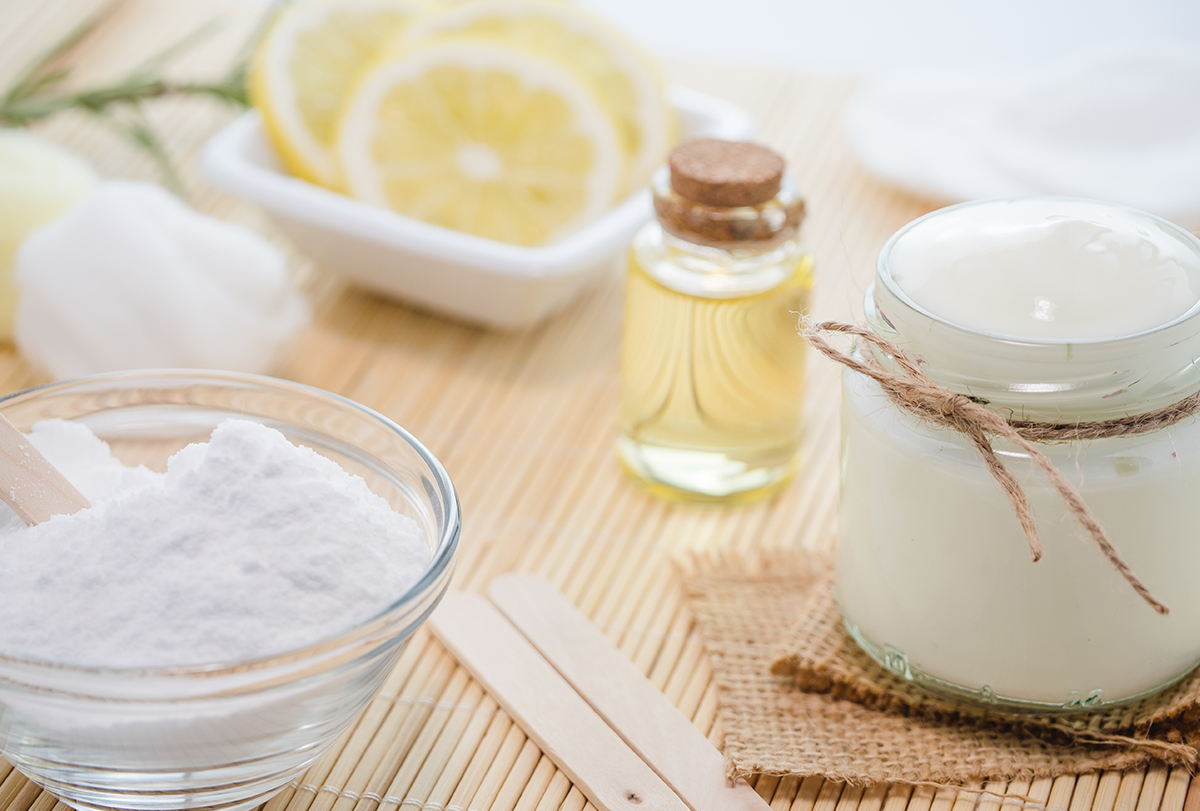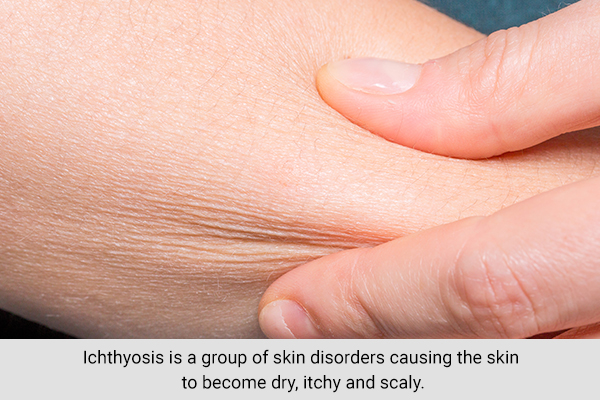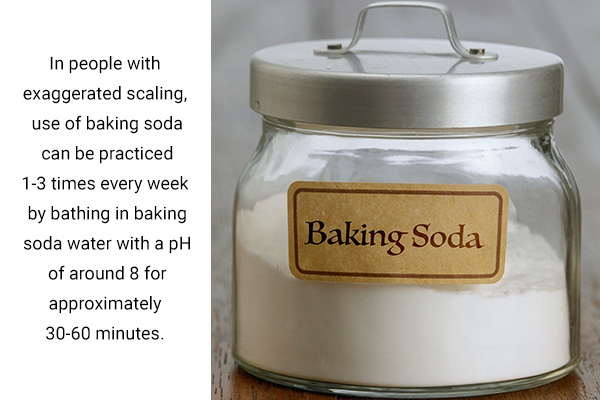In this article:
Baking soda, chemically known as sodium bicarbonate or sodium hydrogen carbonate, has been used as a skin care ingredient for various reasons such as exfoliation. It is also famously used in oral health care products. It is a staple in the kitchen and used in baked products.

So, if you want to know how to use baking soda for skin conditions, the potential health risks of using it on your skin, and tips to use it safely, read on.
How to Use Baking Soda on Your Skin and Face Daily
Whether you can use baking soda on your face and how many times a week you can do so depend upon your skin condition and if you have any skin disorder.
Here’s how you can use baking soda on your skin:
1. Baking soda for acne
Baking soda is a natural antiseptic that has antibacterial properties. Its topical application to the skin helps reduce bacteria, although it should not be used for preventing acne by scrubbing.
You can apply a paste of baking soda and water to acne-affected areas for a few minutes and then rinse.
If you have acne-prone skin, do not use baking soda regularly and, in fact, avoid it. This is because baking soda is an abrasive, and when applied to the skin, it could damage and irritate it. This will lead to more breakouts.
Baking soda also raises the pH of the skin, which is detrimental to acne-prone skin. (1)(2)
2. Baking soda for ichthyosis

Ichthyosis is a group of skin disorders that causes the skin to become dry, itchy, and scaly.
In one research study, more than 300 patients who had ichthyosis routinely took baking soda baths. Two handfuls of baking soda can raise the pH of a tub half-filled with water from 5.5 to 7.9. This can be called alkalinization, and no data suggest that exposure to the alkaline nature of dissolved sodium bicarbonate is either irritating or harmful.
The study concluded that patients with excessive scaling who took baking soda baths with a pH of 8 experienced better removal of scale and improved comfort and cosmesis.
So, taking baking soda baths is safe for your face and skin when done periodically (1–3 times per week). (3)
3. Baking soda for rash
In one research study, baking soda was used generously for treating rash caused by diapers in an infant. The baby experienced hypokalemic metabolic alkalosis that underwent complete resolution after discontinuation of the baking soda applications.
The study, therefore, suggested that excessive use of remedies such as the application of baking soda to the skin can have significant side effects. So, it is best to avoid using baking soda every day, especially if you have rashes. (4)
4. Baking soda for psoriasis
Psoriasis is a chronic inflammatory disease characterized by the presence of lesions on the skin.
There have been studies that focused on the use of baking soda for the treatment of psoriasis and results showed improvements. However, in one of the studies, baking soda was found to be not beneficial for psoriasis when used as a topical paste.
So, the use of baking soda in such cases should only be done if you experience any improvement. (5)
How Can Baking Soda Be Safely Used at Home for Dry, Itchy, and Scaly Skin?

In people with severe scaling, baking soda can be used 1–3 times a week by bathing in baking soda water with a pH of around 8 for approximately 30–60 minutes. This should be followed by the application of an emollient. This method is deemed to be safe and effective for the removal of scale and provision of comfort to patients. (3)
Your skin is meant to be slightly acidic as it has a pH of 4.7 on average, but baking soda has a higher pH. (6) So, since baking soda is alkaline, it can alter the natural pH of the skin. (3)
Therefore, using baking soda regularly and in excessive amounts will increase skin pH and can lead to dryness and irritation, among other side effects. Also, it is too basic for use as a face wash solution as it will strip the skin of necessary oils.
So, it is best to avoid the use of baking soda on your face, and instead, look for better alternatives based on your skin goals.
Most-Asked Questions About Baking Soda for Skin Care
Who should avoid baking soda baths?
Avoid baking soda baths if you have:
- Serious infection
- Diabetes
- Open wounds
- Allergies to baking soda
- Heart issues
Is baking soda used in cosmetics and hygiene/care products?
Sodium bicarbonate is used to control the acid-base balance or the pH of cosmetic products. It can be used as an abrasive, deodorant, or oral care agent. (7)
Final Word
Baking soda is an easy-to-find product that is available in everyone’s kitchen. It is used as a home remedy to help manage symptoms of some skin conditions.
It is important to remember that baking soda may not be safe for everyone. So, it is advisable that you talk to your dermatologist before using baking soda on your skin.
- Was this article helpful?
- YES, THANKS!NOT REALLY


